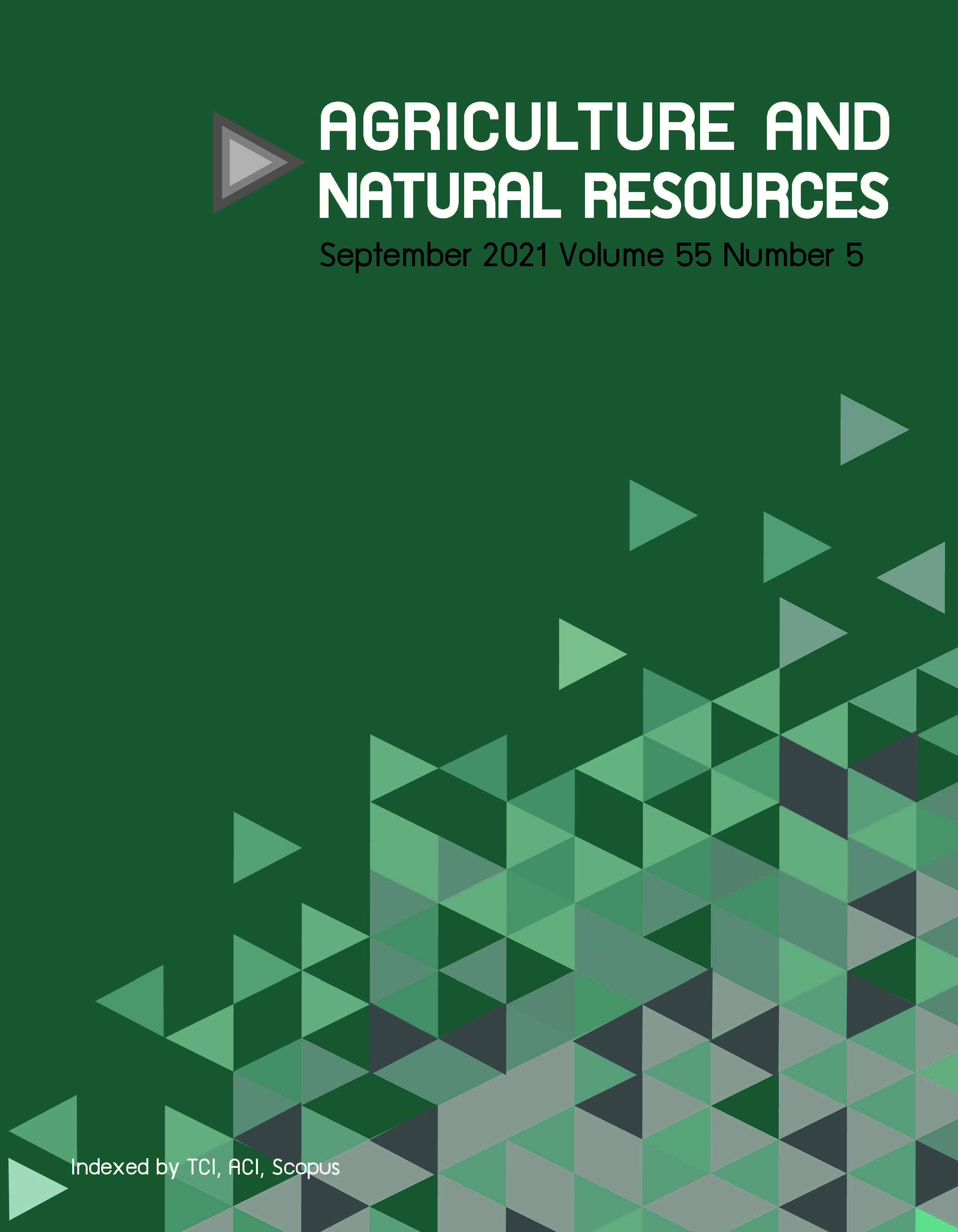Effects of drying rates on quality of Thai hot-chili (Capsicum annuum L.) seed after priming
Keywords:
Controlled deterioration, Germination rate, Headspace ethanol, Mitochondria, VigorAbstract
The effect of drying rates was investigated on the quality of Thai hot-chili (Capsicum annuum L. cv Maeping) seeds that were primed using 2% KNO3 solution at 20°C for 72 hr followed by eight drying treatments: 1) rapid drying (RD) by drying primed seeds at 35% relative humidity (RH) for 72 hr, 2–7) slow drying (SD) by drying primed seeds at 75% RH for 12 hr, 24 hr, 36 hr, 48 hr, 60 hr or 72 hr, respectively, followed by RD treatment as previously described and 8) double slow drying (DSD) by drying primed seeds at 75% RH for 48 hr followed by 50% RH for 48 hr and then RD. The seed quality was assessed based on a germination test, an emergence test, a controlled deterioration (CD) test and headspace ethanol assay. The results showed that all drying treatments significantly improved the germination rate and emergence performance of primed seed compared to the control. SD ≥ 48 hr and DSD outperformed RD for all seed quality determined. On the contrary, the germination rate and field emergence performance of SD ≥ 48 hr and the DSD treatments decreased significantly after the CD test. The negative effect of these slow-drying treatments on seed vigor was confirmed by their significant increases in headspace ethanol production after CD testing compared to RD. The optimum drying treatment is to dry the primed seed at 75% RH and 20°C for 12 hr, followed by rapid drying at 35% RH and 20°C for 3 d.
Downloads
Published
How to Cite
Issue
Section
License
Copyright (c) 2021 Kasetsart University

This work is licensed under a Creative Commons Attribution-NonCommercial-NoDerivatives 4.0 International License.
online 2452-316X print 2468-1458/Copyright © 2022. This is an open access article under the CC BY-NC-ND license (http://creativecommons.org/licenses/by-nc-nd/4.0/),
production and hosting by Kasetsart University of Research and Development Institute on behalf of Kasetsart University.







